Posted: December 15th, 2017 | Author: Sven | Filed under: found on the net, Report, Research Data | Tags: business model, data repositories, oecd | Comments Off on OECD publishes report on business models for sustainable data repositories
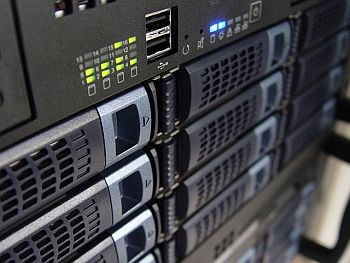 In 2007, the OECD Principles and Guidelines for Access to Research Data from Public Funding were published and in the intervening period there has been an increasing emphasis on open science. At the same time, the quantity and breadth of research data has massively expanded. The promise of open (research) data is that they will not only accelerate scientific discovery and improve reproducibility, but they will also
In 2007, the OECD Principles and Guidelines for Access to Research Data from Public Funding were published and in the intervening period there has been an increasing emphasis on open science. At the same time, the quantity and breadth of research data has massively expanded. The promise of open (research) data is that they will not only accelerate scientific discovery and improve reproducibility, but they will also
speed up innovation and improve citizen engagement with research.
However, for the benefits of open science and open research data to be realised, these data need to be carefully and sustainably managed so that they can be understood and used by both present and future generations of researchers. Data repositories are where the long-term stewardship of research data takes place and hence they are the foundation of open science. So, the development of sustainable business models for research data repositories needs to be a high priority in all countries. Read the rest of this entry »
Posted: November 30th, 2017 | Author: Sven | Filed under: Report | Tags: infrastructure, Knowledge Exchange, Research Data | Comments Off on New KE-report: ‘The Evolving Landscape of Federated Research Data Infrastructures’
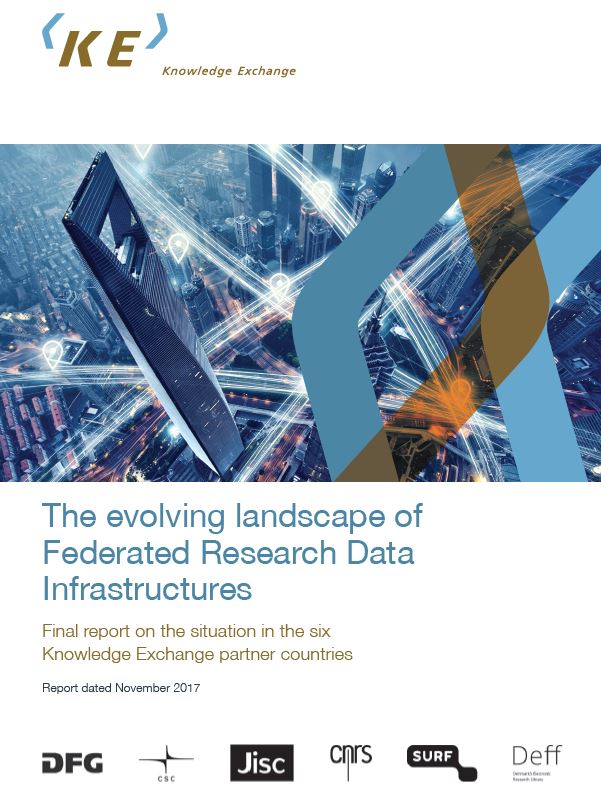 Knowledge Exchange, a consortium of six national organisations in Europe tasked with developing infrastructures and services to enable the use of digital technologies to improve higher education and research, has just a released a report on federated research data infrastructures.
Knowledge Exchange, a consortium of six national organisations in Europe tasked with developing infrastructures and services to enable the use of digital technologies to improve higher education and research, has just a released a report on federated research data infrastructures.
In 2016, the Knowledge Exchange Research Data expert group identified a need for better understanding of the nature and consequences of research and data infrastructure being more and more federated. Work was designed to find answers to questions such as ‘Which are the main drivers for federating RD infrastructures and services ? What are the expected benefits? What are the consequences for research and researchers? What challenges and issues arise when making a federated research data infrastructure function well?’ Read the rest of this entry »
Posted: August 7th, 2017 | Author: Timo | Filed under: Report | Tags: economics, repositories, Software, Statistics | Comments Off on Statistical software: its use and popularity in Economics

by Christina Kläre & Timo Borst
During a four weeks project at ZBW’s Department for Information Systems and Publishing Technologies, we collected some publicly available information about statistical software packages being used in research in Economics. This work is inspired by a constantly updated blog post from Robert A. Muenchen, who examined information sources like job announcements, scientific articles, reports from IT companies, questionnaires, sales statistics from software textbooks, blogposts, forums, polls measuring popularity of programming languages, sales and download figures, or the frequency of software releases from software vendors. By means of these sources, we conducted the following data collections. Read the rest of this entry »
Posted: December 14th, 2016 | Author: Sven | Filed under: Report, Research Data | Tags: big data, Guidelines, oecd, privacy | Comments Off on OECD publishes new guidelines on research ethics & new forms of data
 The variety and volume of the New Forms of Data that are available with potential to inform research
The variety and volume of the New Forms of Data that are available with potential to inform research
in the social sciences is rapidly expanding. Much of this falls in the category of ‘Big Data’ which are
characterised by their size and complexity and the fact that they are often not amenable to the more
traditional forms of statistical analysis used in social science research.
New kinds of data are rapidly becoming available in massive quantities, providing a record of the transactions we carry out, the communications we make and other social and economic activities. These data offer significant potential for research in the social sciences and beyond, with the possibility of new insights and benefits to society, health and the economy. Although these new forms of data provide exciting possibilities for future research, using them also presents ethical and practical challenges – the risk of disclosure of identities, the ethics of using such data in research and reputational risks for organisations collecting or creating data.
Read the rest of this entry »
Posted: November 14th, 2016 | Author: Sven | Filed under: Report | Tags: Knowledge Exchange, Training | Comments Off on KE publishes recommendations for a Repository for Training Materials on RDM
 Knowledge Exchange (KE) has recently released recommendations for a repository for training materials on research data management (RDM). Following a workshop of experts in February 2016 in London and the publication of a report called “Training for research data management: comparative European approaches”, the currently published report focusses on requirements for a repository on RDM training materials.
Knowledge Exchange (KE) has recently released recommendations for a repository for training materials on research data management (RDM). Following a workshop of experts in February 2016 in London and the publication of a report called “Training for research data management: comparative European approaches”, the currently published report focusses on requirements for a repository on RDM training materials.
One of the practical outcomes of the workshop was that no international repository for information on training resources currently exists. To make existing nationally focused training material Findable, Accessible, Interoperable and Reusable (FAIR) an international initiative is needed to establish a repository or platform to deposit or link training materials on RDM. This would also help to train the urgently needed data stewards requested in the report ‘Realising the European Open Science Cloud’ by the High Level Expert Group on the European Open Science Cloud (EOSC). Read the rest of this entry »
Posted: July 19th, 2016 | Author: Sven | Filed under: German, Report, Research Data | Tags: funding, recommendations | Comments Off on ‘Council for Scientific Information Infrastructures’ publishes recommendations on RDM structures and processes
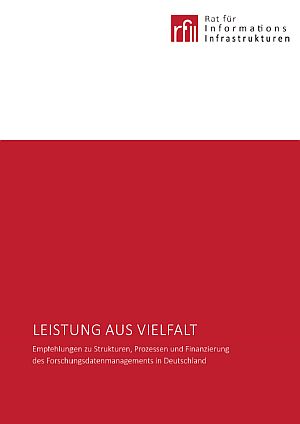 In June, the German Council for Scientific Information Infrastructures (RfII) has published some recommendations on determinats of future research data management and the development of corresponding infrastructures.
In June, the German Council for Scientific Information Infrastructures (RfII) has published some recommendations on determinats of future research data management and the development of corresponding infrastructures.
Because I believe that these recommendations are also of broader interest to our readers, I would like to highlight some of recommendations of the report.
But first of a all, some introductory words on the RfII: The German Council for Scientific Information Infrastructures was established in November 2014. The 24 members work in an honorary capacity and were appointed by the Joint Science Conference of the Federal States and the Federal Government of Germany for a service period of four years. The Rfll was tasked by Germany’s Joint Science Conference (GWK) with formulating broad-based recommendations for the science system in Germany as a whole.
Consequently, the recommendations presented in the report have ramifications for a variety of actors in the domains of politics and science. The Rfll is convinced that the adoption of new ways in dealing with research data as well as long-term preservation and accessibility will be a significant, common challenge for all actors in the years ahead. Read the rest of this entry »
Posted: May 20th, 2016 | Author: Sven | Filed under: Report | Tags: Knowledge Exchange, RDM, Training | Comments Off on New KE report: Training for research data management: comparative European approaches
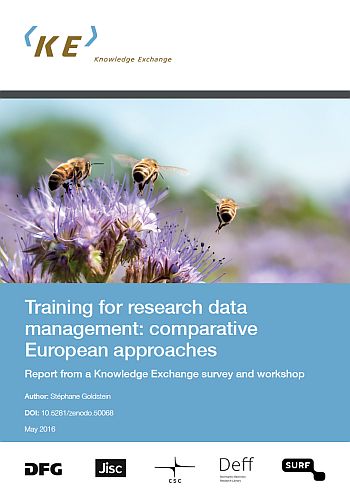 Knowledge Exchange (KE) has released a new report: “Training for research data management: comparative European approaches” is it called and it marks the preliminarly result of a longer time of discussions among several European stakeholders and communities.
Knowledge Exchange (KE) has released a new report: “Training for research data management: comparative European approaches” is it called and it marks the preliminarly result of a longer time of discussions among several European stakeholders and communities.
At the end of 2015, KE initiated a project to compare approaches in research data management (RDM) training within the partnership’s five member countries. The project was structured around two strands of activity:
The group developed a survey to collect information on current practice around RDM training, in order to provide an overview of the RDM training landscape in several European countries. Subsequently, a workshop in February followed to share successful approaches to RDM training and capacity building provided within institutions and by infrastructure. Read the rest of this entry »
Posted: April 21st, 2016 | Author: Sven | Filed under: Data Sharing, Report | Tags: Replication, replication studies, research paper | Comments Off on New Working Paper: “Perceptions and Practices of Replication by Social and Behavioral Scientists”
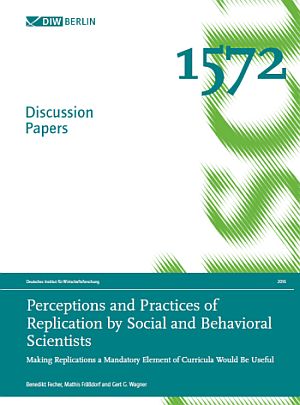 One of our project partners has just released a publication that deals with the replication crises in economics and the social sciences.
One of our project partners has just released a publication that deals with the replication crises in economics and the social sciences.
In the abstract the three autors state:
We live in a time of increasing publication rates and specialization of scientific disciplines. More and more, the research community is facing the challenge of assuring the quality of research and maintaining trust in the scientific enterprise. Replication studies are necessary to detect erroneous research. Thus, the replicability of research is considered a hallmark of good scientific practice and it has lately become a key concern for research communities and science policy makers alike.
In their discussion paper Fecher, Fräßdorf and Wagner analyze perceptions and practices regarding replication studies in the social and behavioral sciences. Their analyses are based on a survey of almost 300 researchers.
Read the rest of this entry »
Posted: March 3rd, 2016 | Author: Sven | Filed under: found on the net, Report, Workshop | Tags: Knowledge Exchange, Software, sustainability | Comments Off on Knowledge Exchange: New Report on Research Software Sustainability published
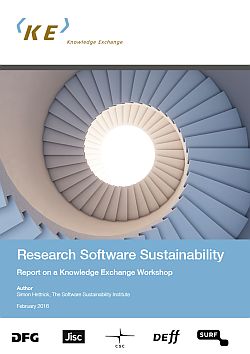
Knowledge Exchange, a consortium of five national organisations within Europe tasked with developing infrastructure and services to enable the use
of digital technologies to improve higher education and research, has just a released another report on research software sustainability. The report is motivated by the importance of research software for the whole scientific process in every research discipline. The report argues:
“Without software, modern research would not be possible. Understandably, people tend to marvel at results rather than the tools used in their discovery, which means the fundamental role of software in research has been largely overlooked. But whether it is widely recognised or not, research is inexorably connected to the software that is used to generate results, and if we continue to overlook software we put at risk the reliability and reproducibility of the research itself.”
Read the rest of this entry »
Posted: December 1st, 2015 | Author: Sven | Filed under: German, Projects, Report, Research Data | Tags: Austria, infrastructure | Comments Off on Austria: New report “Researchers and their Data” published
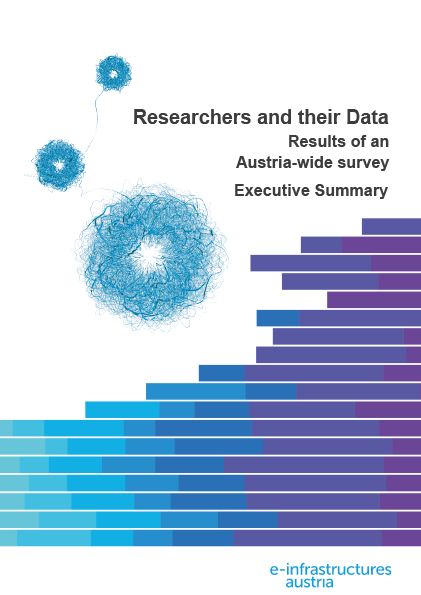 A solid research data management system is the foundation of cooperative, open research. In addition such a system fosters reproducibility and verifiability of research.
A solid research data management system is the foundation of cooperative, open research. In addition such a system fosters reproducibility and verifiability of research.
This topic is relevant and up-to-date for researchers, funding bodies and senior posts of scientific institutions, which is currently also underpinned by the pilot for research data of the European Commission.
In this context, the project e-Infrastructures Austria has just released a report that provides an overview of an Austria-wide survey on research data. The survey was carried out at the beginning of 2015. It was directed at the scientific and artistic-scientific personnel of all 21 public universities and three extramural research institutions in Austria.
The project received 3026 completed questionnaires, which is equivalent to an average response rate of 9 %. Read the rest of this entry »
Posted: September 30th, 2015 | Author: Sven | Filed under: found on the net, Report | Tags: Knowledge Exchange, research identifiers | Comments Off on New KE-Report: Researcher identifiers – National approaches to ORCID and ISNI implementation
 Knowledge Exchange (KE) – a collaboration between five national organisations, DFG – the German Research Foundation, JISC , DEFF – Denmark’s Electronic Research Library, SURF – the ICT organisation for Dutch higher education and research and CSC – the IT Centre for Science in Finland- has just released a new report on research identifiers.
Knowledge Exchange (KE) – a collaboration between five national organisations, DFG – the German Research Foundation, JISC , DEFF – Denmark’s Electronic Research Library, SURF – the ICT organisation for Dutch higher education and research and CSC – the IT Centre for Science in Finland- has just released a new report on research identifiers.
In June 2015, KE brought together representatives from its five member countries for a Knowledge Exchange Workshop on National approaches to ORCID (Open Researcher and Contributor ID) and ISNI (International Standard Name Identifier) implementation. The aim of the workshop was to share national perspectives on ORCID and ISNI, including the challenges, solutions and lessons learned with regards to implementation of ORCID and ISNI on a national scale. Read the rest of this entry »
Posted: April 28th, 2015 | Author: Sven | Filed under: German, journals, Opinion, Report | Tags: ethics, German Council of Science and Humanities | Comments Off on German Council of Science and Humanities publishes Recommendations on Scientific Integrity
Yeste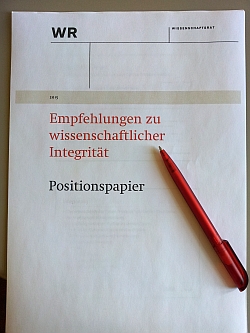 rday, the German council of Science and Humanities (Wissenschaftsrat) published a 54-page position paper on scientific integrity (unfortunately in German only). In a press release the scientific body stated:
rday, the German council of Science and Humanities (Wissenschaftsrat) published a 54-page position paper on scientific integrity (unfortunately in German only). In a press release the scientific body stated:
“Prosperity and development of modern societies today depend to a large extent on the quality and progress of scientific knowledge. Therefore it is important that the public can trust in the ethical and quality standards of the scientific community. Cases of fraud and misconduct – particularly major fraud and plagiarism scandals – undermine that trust. In response to such cases of fraud and loss of confidence many scientific organisations have published rules and guidelines dedicated to a Good Scientific Practice in the last few years. The German council of Science and Humanities now has adopted a position paper and recommendations on scientific integrity.” Read the rest of this entry »
Posted: February 25th, 2015 | Author: Sven | Filed under: Data Sharing, Report | Tags: data citation, reputation | 1 Comment »
 Academic data sharing is a way for researchers to collaborate and thereby meet the needs of an increasingly complex research landscape. It enables researchers to verify results and to pursuit new research questions with “old” data.
Academic data sharing is a way for researchers to collaborate and thereby meet the needs of an increasingly complex research landscape. It enables researchers to verify results and to pursuit new research questions with “old” data.
.
It is therefore not surprising that data sharing is advocated by funding agencies, journals and researchers alike. Read the rest of this entry »
Posted: November 13th, 2014 | Author: Sven | Filed under: Data Sharing, Report | Tags: incentives, Knowledge Exchange | Comments Off on New KE-Publication: “Sowing the seed” #Update
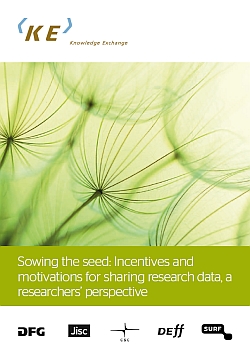 A few days ago, Knowledge Exchange (KE) – a cooperation of five national funding organisations (DFG, Surf, DEFF, CSC and JISC) – has just released a new publication, titled “Sowing the seed: Incentives and motivations for sharing research data, a researchers’ perspective.”
A few days ago, Knowledge Exchange (KE) – a cooperation of five national funding organisations (DFG, Surf, DEFF, CSC and JISC) – has just released a new publication, titled “Sowing the seed: Incentives and motivations for sharing research data, a researchers’ perspective.”
This qualitative study has gathered evidence, examples and opinions on current and future incentives for research data sharing from the researchers’ point of view, in order to provide recommendations for policy and practice development on how best to incentivize data access and re-use.
Incentives and motivations ask for development of a data infrastructure with rich context where research data, papers and other outputs or resources are jointly available within a single data resource. Different types of data sharing and research disciplines need to be acknowledged. Read the rest of this entry »
Posted: May 16th, 2014 | Author: Sven | Filed under: Report, Research Data | Tags: Germany, infrastructure, RDM, University | Comments Off on German’s Rector Conference recommends RDM as strategic task for university directorates
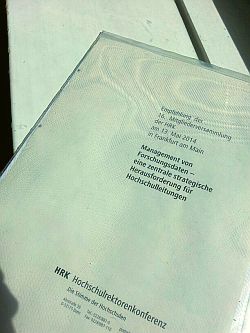 In a suggestion published a few days ago, the general meeting of the German’s Rector Conference (Hochschulrektorenkonferenz (HRK), a voluntary association of currently 268 state and state-recognised universities and other higher education institutions (HEI) in Germany at which more than 94 per cent of all students in Germany are registered), has advised university directorates to take the necessary steps to support research data management, crosslinking and long-term preservation of and access to research data. For these important tasks suitable infrastructure components are required – a task the German’s Rector Conference also suggests the university directorates to be responsible for.
In a suggestion published a few days ago, the general meeting of the German’s Rector Conference (Hochschulrektorenkonferenz (HRK), a voluntary association of currently 268 state and state-recognised universities and other higher education institutions (HEI) in Germany at which more than 94 per cent of all students in Germany are registered), has advised university directorates to take the necessary steps to support research data management, crosslinking and long-term preservation of and access to research data. For these important tasks suitable infrastructure components are required – a task the German’s Rector Conference also suggests the university directorates to be responsible for.
Read the rest of this entry »
 In 2007, the OECD Principles and Guidelines for Access to Research Data from Public Funding were published and in the intervening period there has been an increasing emphasis on open science. At the same time, the quantity and breadth of research data has massively expanded. The promise of open (research) data is that they will not only accelerate scientific discovery and improve reproducibility, but they will also
In 2007, the OECD Principles and Guidelines for Access to Research Data from Public Funding were published and in the intervening period there has been an increasing emphasis on open science. At the same time, the quantity and breadth of research data has massively expanded. The promise of open (research) data is that they will not only accelerate scientific discovery and improve reproducibility, but they will also


 The variety and volume of the New Forms of Data that are available with potential to inform research
The variety and volume of the New Forms of Data that are available with potential to inform research Knowledge Exchange
Knowledge Exchange In June, the German Council for Scientific Information Infrastructures (
In June, the German Council for Scientific Information Infrastructures (
 One of our project partners has just released a publication that deals with the replication crises in economics and the social sciences.
One of our project partners has just released a publication that deals with the replication crises in economics and the social sciences.
 A solid research data management system is the foundation of cooperative, open research. In addition such a system fosters reproducibility and verifiability of research.
A solid research data management system is the foundation of cooperative, open research. In addition such a system fosters reproducibility and verifiability of research. Knowledge Exchange (
Knowledge Exchange ( rday, the German council of Science and Humanities (Wissenschaftsrat) published a 54-page position paper on scientific integrity (unfortunately in German only). In a press release the scientific body stated:
rday, the German council of Science and Humanities (Wissenschaftsrat) published a 54-page position paper on scientific integrity (unfortunately in German only). In a press release the scientific body stated:
 A few days ago, Knowledge Exchange (
A few days ago, Knowledge Exchange ( In a suggestion published a few days ago, the general meeting of the German’s Rector Conference (
In a suggestion published a few days ago, the general meeting of the German’s Rector Conference (





